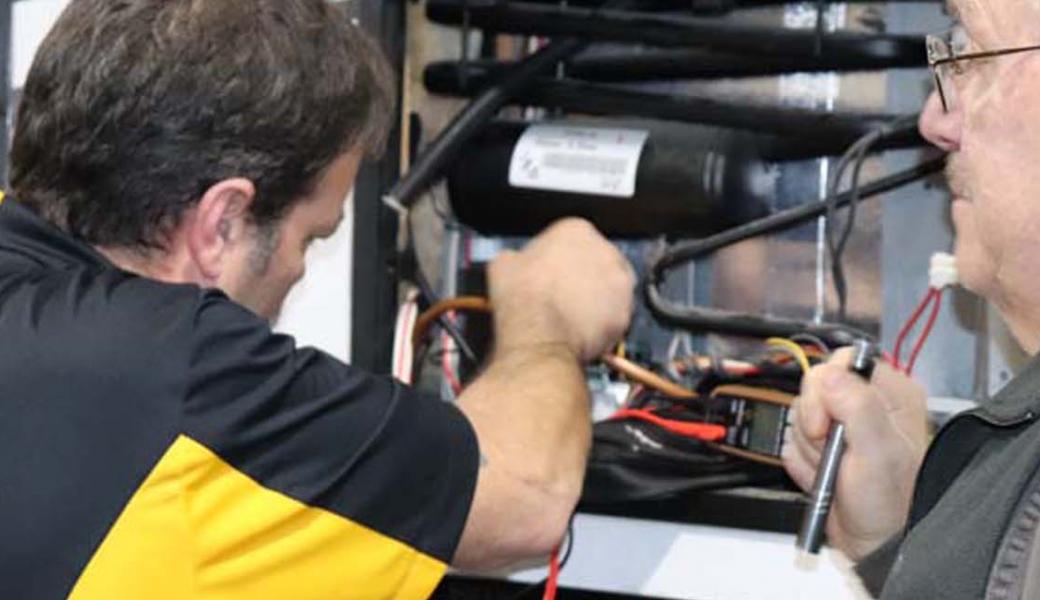4 Important Business Skills I Learned From Service Technicians (And Not Business School)

The RV Technical Institute is the gold standard when it comes to RV technician training, providing the only industry-backed training curriculum and RV technician certification and career path. As the demand for skilled workers continues to increase, the RV Technical Institute is working to fill that gap by encouraging technician career paths through the development of an RV technician training curriculum and resources.
When I first started out in the service technician world, I wanted to apply my business school knowledge to everything. I valued data deep dives, rapid response times, and perfecting protocols to get businesses to the next level.
However, the service technicians I work with have taught me something I could never learn in school: the value of slowing down, minimizing data, and ditching the formal process to arrive at better solutions. While their approach is contrary to my education, I realize these important business skills are instrumental to their success and can be applied to professionals from all backgrounds.
Here are four necessary skills you won’t learn in business school.
1. Being comfortable with ambiguity
When I worked in finance, technology, and law, I thought hard data was the golden standard for decision-making, but overreliance on facts and figures can be distracting in an ambiguous market.
For example, you can never know how many big projects are going to happen in a given year. There are big fish out there, like hospitals and apartment complexes, that may need hundreds of service technicians, but no amount of analysis can prove exactly when they’ll be hiring. Plus, you can’t be sure how many competitors will enter the market or how that might impact your margins.
The service technicians who have been in the business for a long time have a feel for how uncertain situations might shake out. They are comfortable with the ambiguity of their industry and don’t need complex software or KPIs to provide insights.
When I was working with my first partner in the service technician industry, I made a five-year projection based on population growth in the market, planned expansion into new territories, and acquisition of additional businesses. It was a textbook business school approach. I had a model built out in Excel and it included colorful charts.
However, the seasoned service techs used a bottom-up approach. They broke the industry down to a few key factors and used that information to intuit their growth as a business:
- This is an in-demand trade.
- We have an existing customer base.
- We know how busy each employee will be installing HVACs, plumbing, or electrical.
Based on this information, they could figure how many 40-hour-per-week technicians we needed, how much revenue we could expect, and what marketing would cost to reach new customers and provide new services.
I realized my high-level, top-down spreadsheet wasn’t the most effective way to manage the business. It took a ton of hard work and didn’t provide any more insight than this bottom-up approach could.
So I decided to trust the pros and their unique business skills. Using their “under-analysis,” we built out a new plumbing division and didn’t waste unnecessary time crunching numbers to get there. In fact, our numbers came out even better than what my complicated spreadsheet estimated we would earn.
2. Knowing when to think fast
Business school might teach us some important business skills, such as how to solve business problems, but it doesn’t teach us when to think fast and when to slow down to tackle issues. Other service technicians taught me it all comes down to urgency. We think fast to triage the most urgent symptoms of a problem, then we slow down to find the long-term solution.
When a massive snowstorm shut down Texas’s infrastructure in February 2021, it was urgent to get the state’s critical systems back online immediately. In one instance, a water tower had a catastrophic failure to its heating system. While we could have repaired the heating system piece by piece over a matter of days, people needed water that day. Thinking fast, we installed a rental heater to provide access to drinking water, buying us time to think slowly and install a more durable heating system.
View the full article from Forbes here.
Please Sign in to View
Log in to view member-only content.
If you believe you are receiving this message in error contact us at memberservices@rvia.org.
